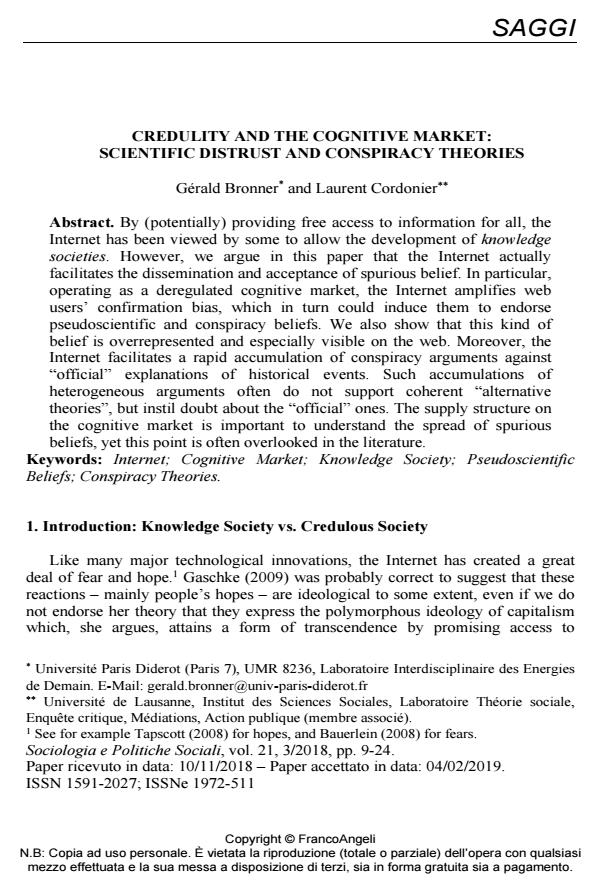Credulity and the cognitive market: scientific distrust and conspiracy theories
Journal title SOCIOLOGIA E POLITICHE SOCIALI
Author/s Gérald Bronner, Laurent Cordonier
Publishing Year 2019 Issue 2018/3
Language English Pages 16 P. 9-24 File size 220 KB
DOI 10.3280/SP2018-003002
DOI is like a bar code for intellectual property: to have more infomation
click here
Below, you can see the article first page
If you want to buy this article in PDF format, you can do it, following the instructions to buy download credits

FrancoAngeli is member of Publishers International Linking Association, Inc (PILA), a not-for-profit association which run the CrossRef service enabling links to and from online scholarly content.
By (potentially) providing free access to information for all, the Internet has been viewed by some to allow the development of knowledge societies. However, we argue in this paper that the Internet actually facilitates the dissemination and acceptance of spurious belief. In particular, operating as a deregulated cognitive market, the Internet amplifies web users’ confirmation bias, which in turn could induce them to endorse pseudoscientific and conspiracy beliefs. We also show that this kind of belief is overrepresented and especially visible on the web. Moreover, the Internet facilitates a rapid accumulation of conspiracy arguments against "official" explanations of historical events. Such accumulations of heterogeneous arguments often do not support coherent "alternative theories", but instil doubt about the "official" ones. The supply structure on the cognitive market is important to understand the spread of spurious beliefs, yet this point is often overlooked in the literature.
Keywords: Internet; Cognitive Market; Knowledge Society; Pseudoscientific Beliefs; Conspiracy Theories.
- L’irrationnel aujourd’hui Laurent Cordonier, pp.225 (ISBN:9791037006936)
Gérald Bronner, Laurent Cordonier, Credulity and the cognitive market: scientific distrust and conspiracy theories in "SOCIOLOGIA E POLITICHE SOCIALI" 3/2018, pp 9-24, DOI: 10.3280/SP2018-003002